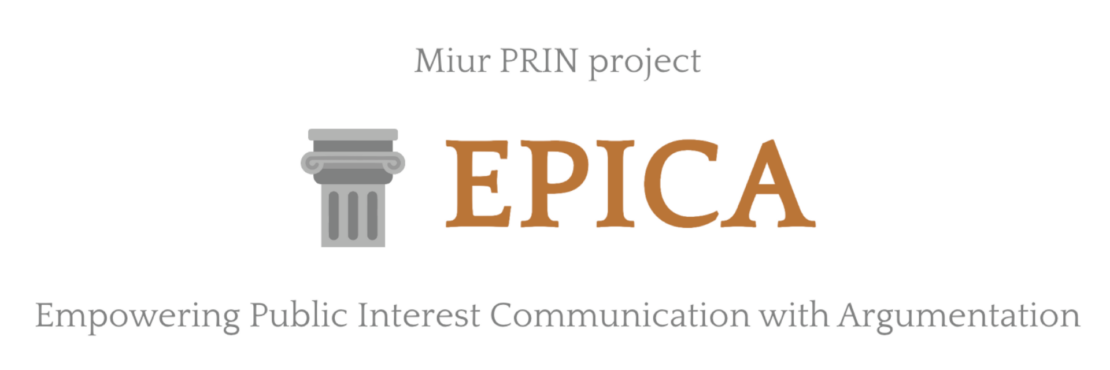Type of project: National | Start date: 28/09/2023 | End date: 27/09/2025
Public Interest Communication (PIC) consists of disseminating messages and organising information campaigns by institutions, organisations, or governments to engage the public on issues of collective interest. By providing accurate information, fighting against misinformation, factual inaccuracies, and misrepresentation of facts, and encouraging positive behaviors, PIC plays a pivotal role in addressing some of the most significant challenges communities and societies face today.
PIC involves a strategic approach that combines various communication tools and channels to effectively reach and engage diverse audiences, and leverages a skilled use of argumentation to this end. However, no theoretical models to analyse, assess, and design effective institutional communication have been proposed until now.
The project EPICA (Empowering Public Interest Communication with Argumentation) aims to fill this gap. EPICA is a 24-month project focused on how Computational Argumentation and Argument Mining can enhance the effectiveness of public communication in promoting the common good. By leveraging advanced AI techniques, EPICA aims to empower public interest communications to be more effective, transparent, and trustworthy.
Methodology
EPICA methodology is based on the development of formal models of argumentation that can address previously identified PIC’s needs. These models will be designed to enhance coherence, persuasiveness, and transparency in public communication.
One of the unique aspects of the project is its focus on long-term and dynamic aspects of communication. Unlike traditional argumentation models, which mostly focus on short-term argumentative exchanges, EPICA will develop an approach that accounts for the evolving nature of public communication over time. This includes adapting to new information and changing public sentiments, which are crucial for maintaining trust and effectiveness in long-term campaigns.
Project objectives
- Analyze existing PIC case studies to identify needs and requirements from an argumentation perspective;
- Develop suitable formal argumentation models tailored to these needs;
- Integrate these models into PIC to support better communication strategies;
- Validate the models through real-world case studies.
Among the expected outcomes, EPICA will propose a set of validated argumentation models explicitly designed for PIC. These models will substantiate tools and algorithms for public institutions that are usable in crafting and assessing their communication strategies.
By demonstrating the benefits of integrating Computational Argumentation and Argument Mining into Public Interest Communication, EPICA will inspire further advancements and applications in other areas of public and private sector communications, promoting at the same time a fruitful integration between formal and data-driven models of computational argumentation.


Acronym:
EPICA
Funding programme:
PRIN 2022
Funding body:
MUR - European Union
Grant agreement:
CUP B53D23013230006
Status:
Ongoing
CNR-ILC role:
Beneficiary
Project coordinator:
Pietro Baroni, Università degli Studi di Brescia
CNR-ILC Research Unit Chair:
Irene Russo
Staff:
Carlo Proietti
Paola Vernillo
Website/s:
https://epica.dmi.unipg.it/

